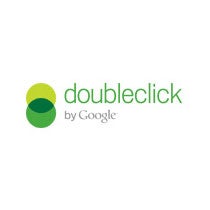 Scott Spencer is Product Management Director of Google’s DoubleClick Ad Exchange. He discussed the new “direct deals” feature of his company’s ad exchange, which was announced here and here yesterday.
Scott Spencer is Product Management Director of Google’s DoubleClick Ad Exchange. He discussed the new “direct deals” feature of his company’s ad exchange, which was announced here and here yesterday.
How is “direct deals” different than “private ad slots”?
These really are two different models, which we think are complementary. With private ad units, which have been available on the DoubleClick Ad Exchange for about a year, a publisher can choose a small set of specific buyers to participate in an auction for select inventory. We provide a great deal of control — for example, a publisher can set a different minimum CPM for each buyer participating — but it is still an auction model. Direct Deals are more exclusive. A publisher can now take a slice of inventory and offer it to a specific buyer at a specific price, before the auction takes place. This “deal” remains in place between the buyer and seller as long as they both agree to the terms; there is no need to go back and re-negotiate the price for each sale. And if the inventory remains unsold, it gets sold via the exchange.
How is the “direct deals” sale facilitated -through GDN reps? And/or how does the buy side access “direct deals” inventory?
Some of these negotiations are already happening organically, but the Ad Exchange account teams are also helping to connect buyers and sellers for these deals. Our team has already made a number of these connections. Any publisher or buyer interested in learning more should talk to their account manager.
Can AdWords buyers buy “direct deals” inventory? How do they apply for approval?
Currently we only offer Direct Deals as a feature within the Ad Exchange. It is worth noting though, that the Google Display Network as a whole can act as a buyer on the Exchange and use Direct Deals. For example, the GDN uses Direct Deals to secure some of the inventory for its GDN Reserve product, which offers advertisers guaranteed impressions at a fixed price across various bundles of inventory.
Any minimums either from the buy or sell-side perspectives?
Nope!
What about guaranteed inventory – is “direct deals” a solution for guaranteed placements such as those sold through a DFP plugin like isocket’s?
Direct Deals are not meant to replace traditional “direct deals,” like those made through DFP, which require an insertion order, etc.; they’re meant to complement them. This is a new way to sell inventory that bridges the gap between directly sold campaigns and the open exchange model. The benefit for publishers is being able to negotiate their own price for their inventory directly with today’s data-driven buyers. The advantage for buyers is being able to buy the impressions they want with all of the advantages of real-time bidding, but without any obligation to purchase.
By John Ebbert










